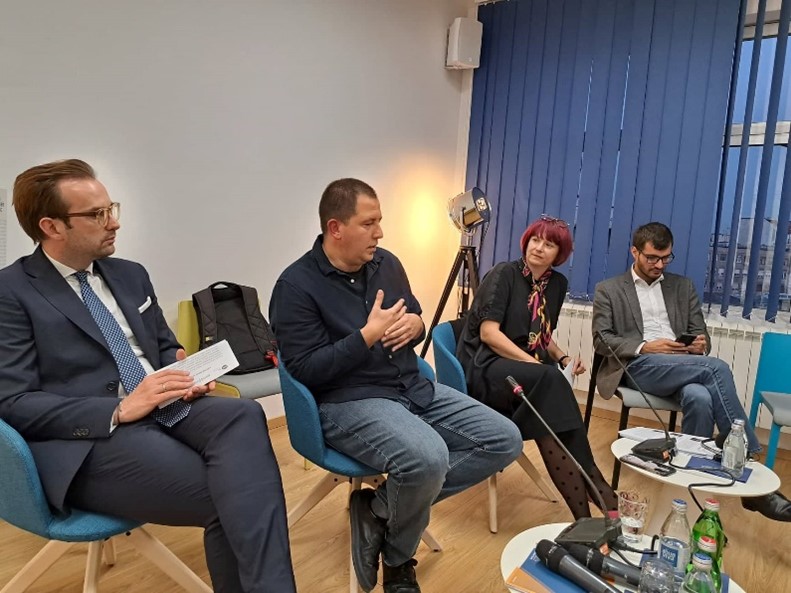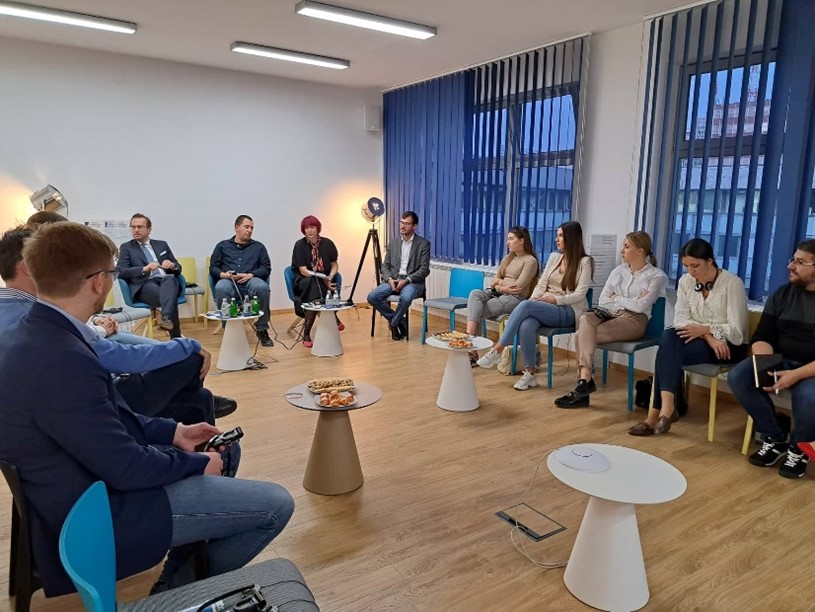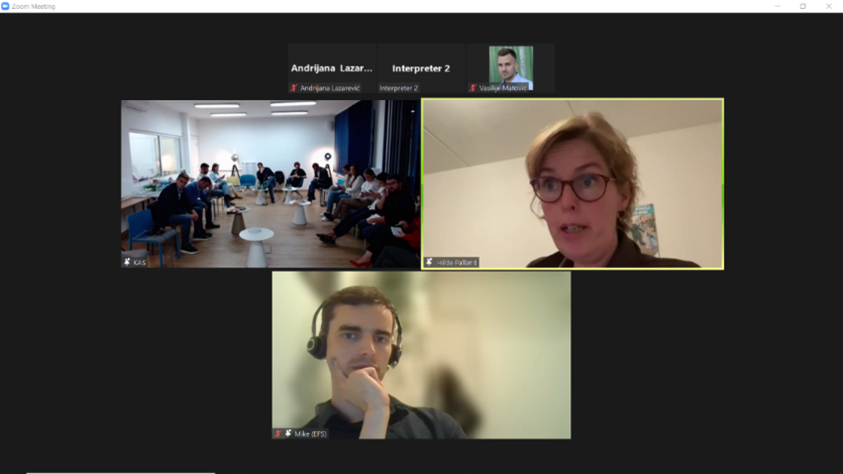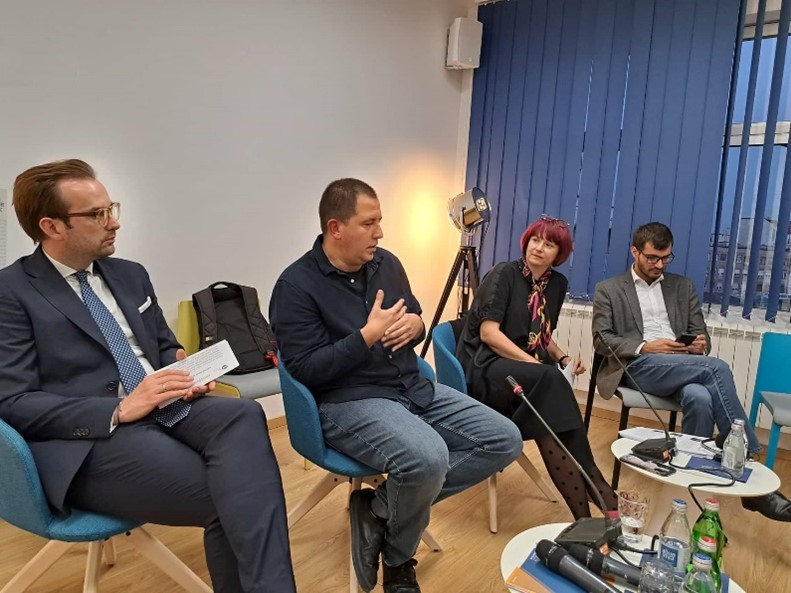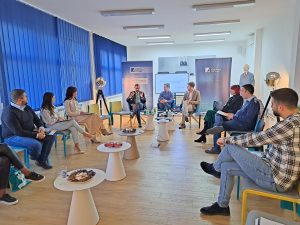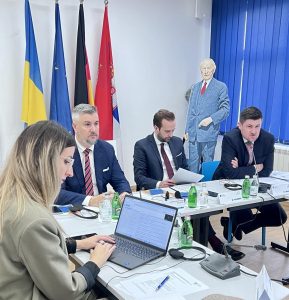The second debate within the PolitiKAS debate program with young MPs is on the topic of Intra-party democracy and representative roles”: How does work in the party differ from work in parliamentary groups? was successfully held on October 24, 2022, on the premises of the Konrad Adenauer Foundation in Belgrade.
The debate was opened by Dr. Dušan Spasojević, assistant professor at the Faculty of Political Sciences, University of Belgrade, who emphasized the importance of the political responsibility of young MPs, which is reflected in their active role in the political party, as well as in the parliament. He further pointed out that the role in parliament is more challenging and significant, because MPs participate in decision-making activities that directly affect citizens.
Speaking from the perspective of the Netherlands, Hilde Palland-Mulder, Member of Parliament in the Dutch Parliament for the Christian Democratic Appel (CDA) party, presented to the MPs the way the Dutch Parliament works, the powers of the Dutch MPs and the mechanisms for balancing activities in the party and the Parliament.
During the discussion, it was noted that there are similar problems regarding the mechanisms and capacity to successfully coordinate the activities of MPs as members of a political party (direct communication with voters, representatives of civil society, and party members) and the role of MPs when it is necessary to adequately address party policies and citizens’ problems. performances in parliamentary addresses.
The issue of publicizing the work of members of parliament and their work in a political party is extremely important in order for citizens to take a greater part in decision-making processes and be satisfied with the way they are represented in parliament by political parties. However, it was indicated that it is necessary to revise the way of communicating because citizens are more inclined to turn to informal channels of communication, which leads to the atrophy of institutions and prevents their development. This can also lead to a clientelistic pattern of communication with citizens.
During the discussion, an interesting comparison was made with parliamentary groups in the Dutch parliament, which are also united by specific topics and solutions they advocate. So, it happens that parties that are not in the coalition are allies if they have the same goal for a certain topic, which is not a common practice in the Serbian parliament. Additionally, the subject of the debate was the differences in the rules for the formation of parliamentary clubs, ways of financing political parties, but also intra-party competition when it comes to positioning on the electoral list.
The next PolitiKAS debate will be held on Monday, October 31, with the topic “Negotiations on Serbia’s accession to the EU and revised EU methodology: familiarization with clusters.
* The RESECO think tank and the Konrad Adenauer Foundation are organizing the project, which is supported by the Eduardo Frei Foundation.
